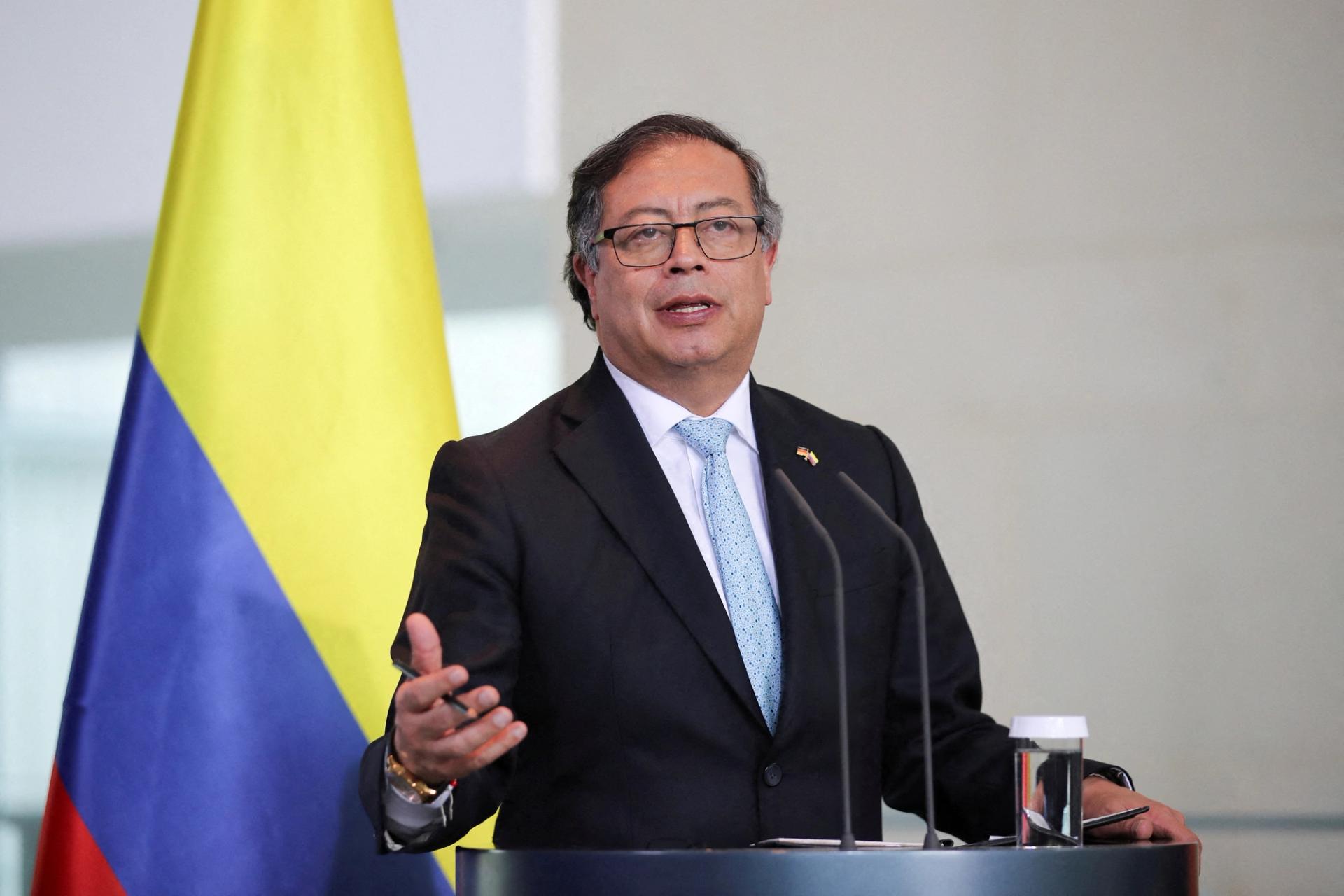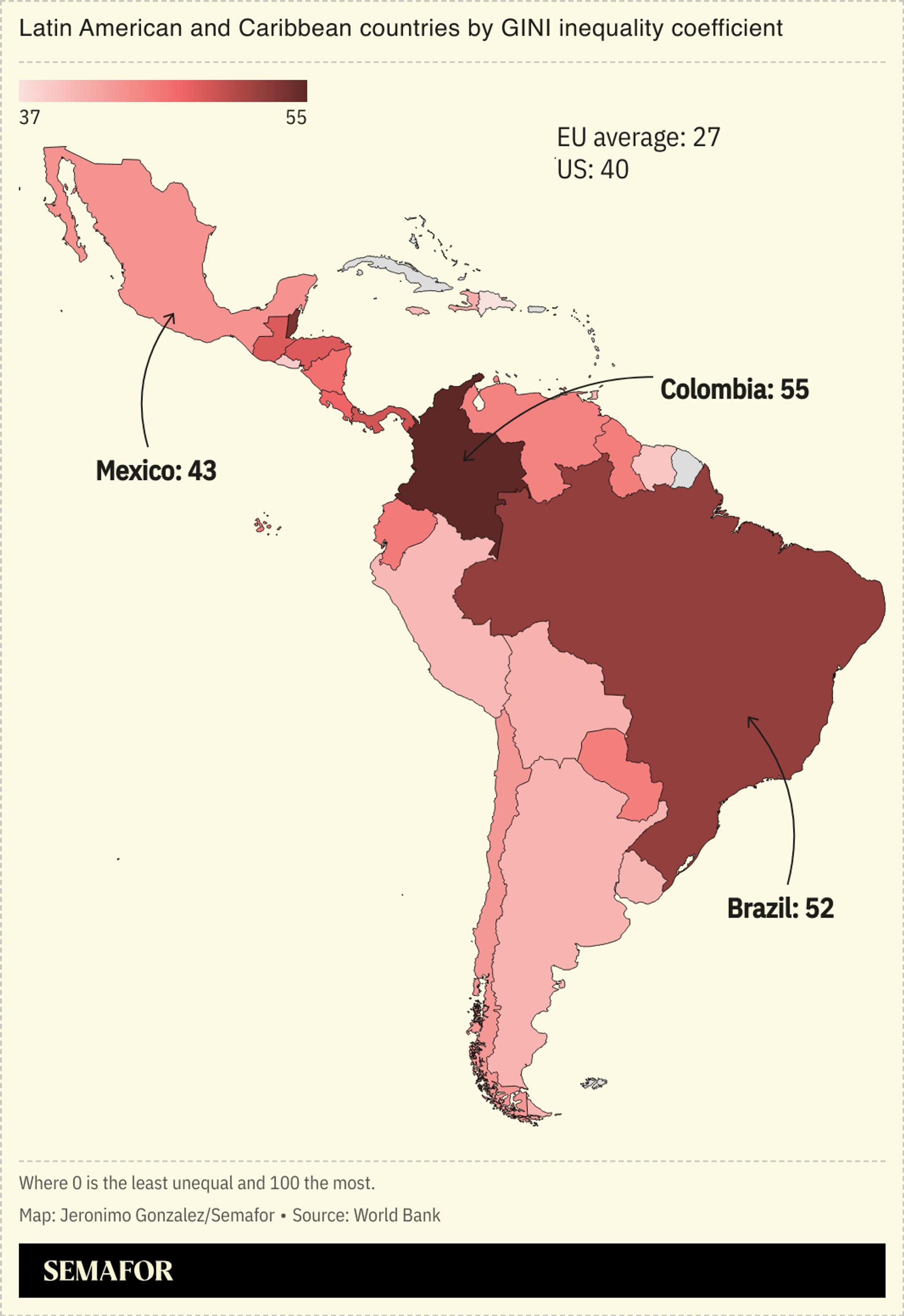
Semafor Signals
Colombia census finds 1.6 million people lifted out of poverty in 2023, but extreme inequality persists
Insights from El País, Brookings Institute, The Conversation, and Organisation for Economic Cooperation and Development

The News
The number of people living in poverty in Colombia fell by 1.6 million in 2023 compared to the previous year, new census data showed.
Although the country’s president celebrated the figures, critics noted that Colombia still needed to do much more to tackle inequality, which remains an issue across Latin America: The highest 10% of earners in the region make 12 times more than the poorest 10%, compared to a four-to-one ratio for richer countries. A study estimated it takes 11 generations for the poorest Colombians to reach the median income of society.

SIGNALS
Poverty still plagues Colombia
Colombia has made progress in lifting people out of poverty for three consecutive years, but a third of the country’s population still lives below the poverty line, El Tiempo reported. A former director of Colombia’s national statistics department told El País the results are encouraging, but that poverty levels are still higher than in pre-pandemic years. Others have criticized the government’s shortcomings in supporting low-income families, like through the redistribution of tax surplus. “The government is not being efficient in social public spending. It is taking income away from Colombians with lower incomes to transfer it to those who have even less,” a political scientist told El País.
Inequality hurts political stability and fuels populism
Inequality has deep social and political consequences, the Brookings Institute think tank noted, including generating discontent, weakening trust in institutions, and undermining governance. As the region with the world’s highest inequality, Latin America has seen persistent political instability and the rise of populist leaders like Perón in Argentina, and Hugo Chávez in Venezuela, who promised jobs and social benefits “not only to the poor but also to large segments of the excluded middle class,” a professor of international development wrote in The Conversation. Inequality also stifles social mobility, which has to improve to reduce inequality, leading to a “vicious cycle,” Americas Quarterly argued.
The green transition could help address inequality
Because of inequality, Latin America has experienced devastating effects of climate change despite its rich biodiversity and lower fossil fuel emissions, El País reported. But the region also has one of the world’s cleanest electricity sectors and houses vast reserves of minerals like lithium, which are critical to the green transition. Promoting investments in the green economy could help tackle inequality in the region, a 2023 report from the Organisation for Economic Cooperation and Development argued: Jobs requiring employees with specialized skills will grow, reducing widespread informal labor that still makes up almost half of the workforce in Latin America.